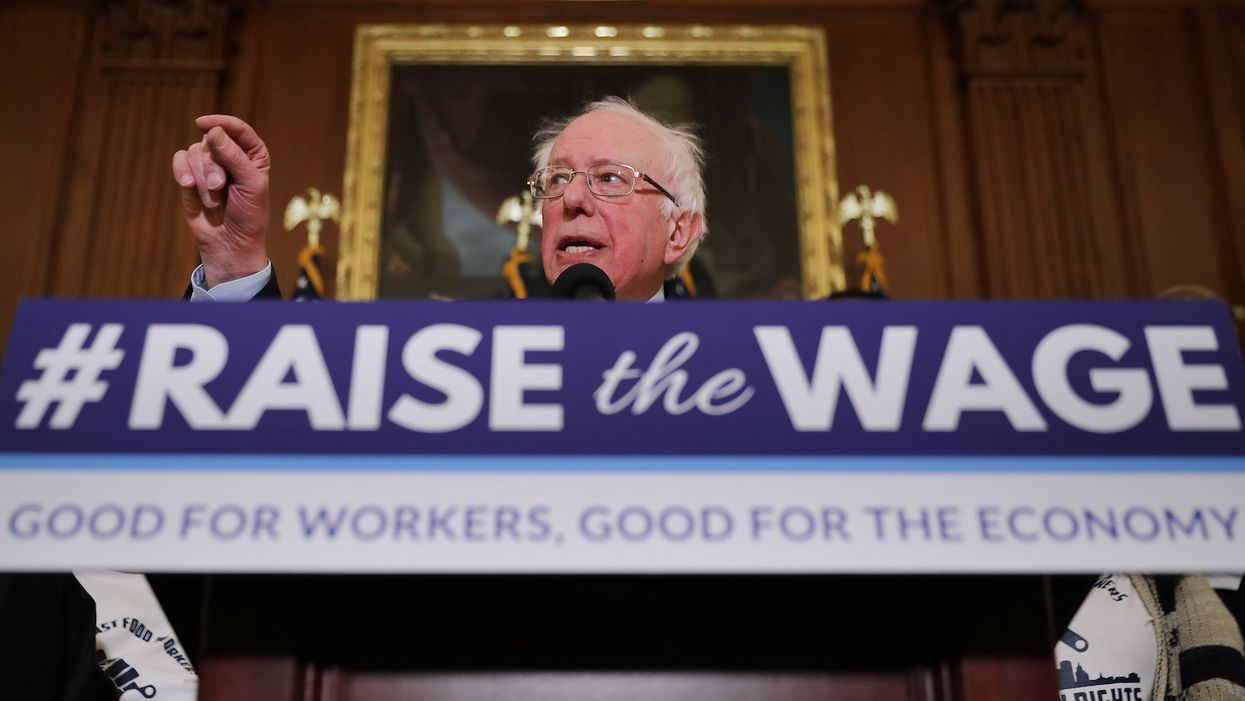
Chip Somodevilla/Getty Images

A good example of the problem with the policy
Employees of the Bernie Sanders presidential campaign unionized and have demanded that, since Sanders advocates for a $15 minimum wage, he should pay his staff accordingly. Fair argument.
The Sanders campaign has responded by doing something that many employers would be forced to do if the minimum wage increased to $15 nationally—he cut their hours so their salary will average out to at least $15 per hour.
Probably not what the staffers had in mind, considering their complaint was about "barely being able to survive financially" on their current pay. From the Des Moines Register:
Sanders said field organizers, who are the lowest-ranking members of a presidential campaign and are typically in their 20s, make $36,000 a year with 100% employer-paid health care, as well as paid vacation and sick leave.
For a staffer working 40 hours a week, that comes out to about $17 an hour. But 40-hour workweeks on presidential campaigns are rare. Sanders said the campaign will limit the number of hours staffers work to 42 or 43 each week to ensure they're making the equivalent of $15 an hour.
So, instead of getting more money for the reported 60-plus hours per week they work, Sanders campaign staffers will just have more free time on their hands—but not more money.
Sanders declared the compromise a success.
"I'm very proud to be the first presidential candidate to recognize a union and negotiate a union contract," Sanders told the Register. "And that contract was ratified by the employees of the campaign, and it not only provides pay of at least $15 an hour, it also provides, I think, the best health care benefits that any employer can provide for our field organizers."
This situation is an instructive example of the downside of more than doubling the minimum wage. Companies don't just suddenly get more money to pay employees. They have to make tough decisions; usually either cutting hours, or worse, cutting staff.